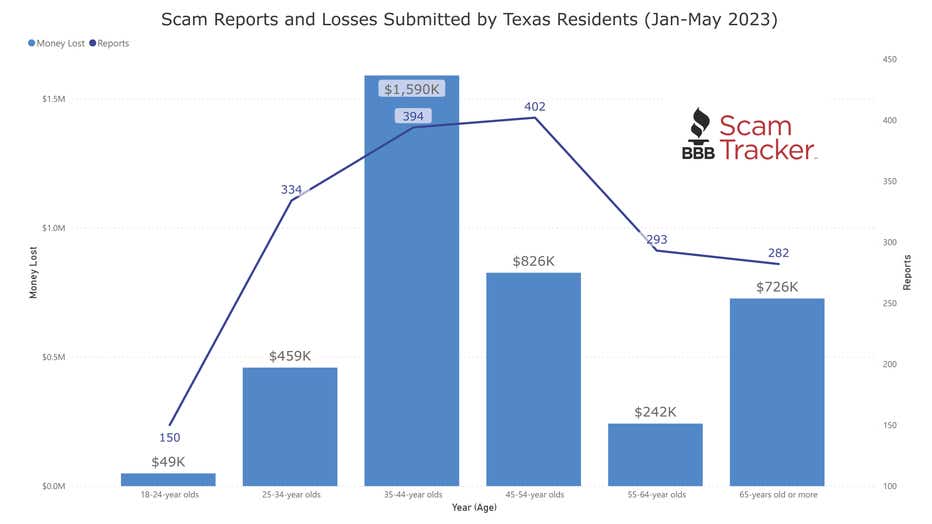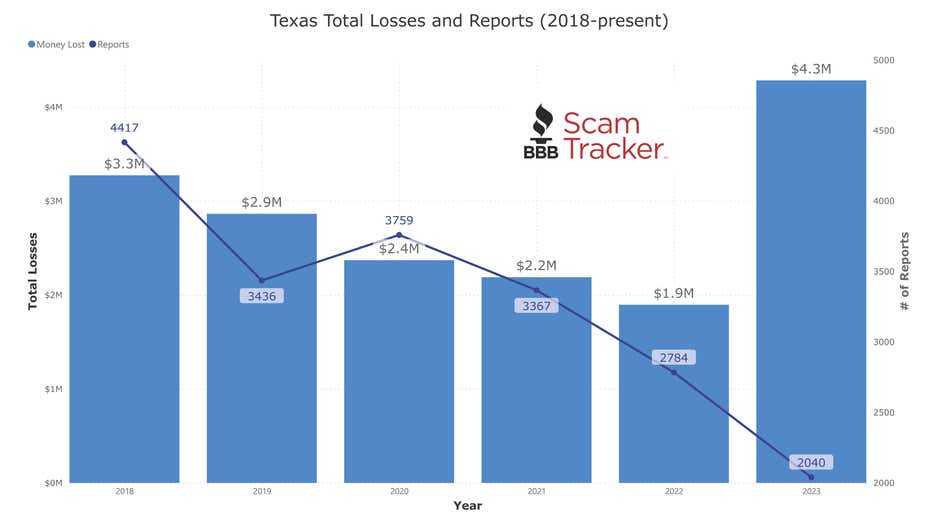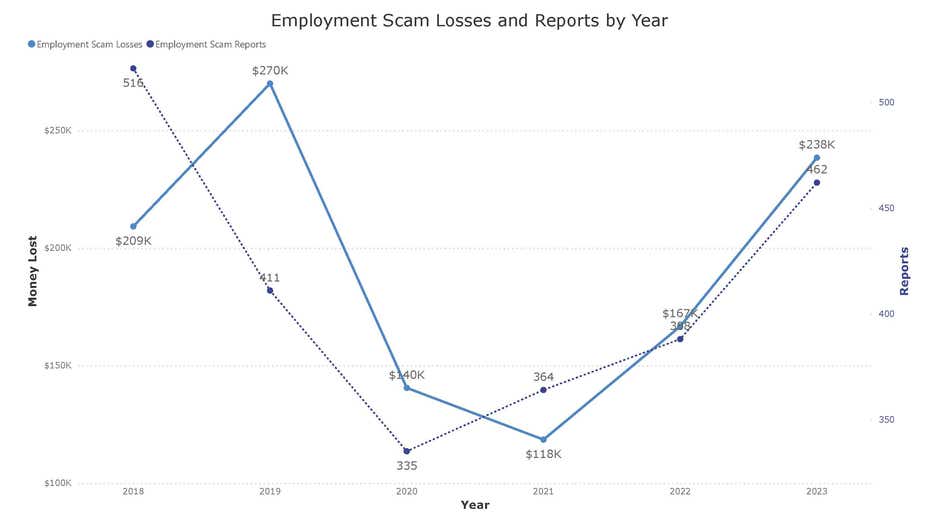Scams cost Texans over $4M so far this year: BBB
AUSTIN, Texas - Texans reported losing over $4 million to scams so far this year according to the Better Business Bureau serving the Heart of Texas.
The BBB recently shared its mid-year-report which looked at consumer-reported scams from Texas residents in the first five months of 2023.
From January to May, Texas consumers reported losing more than $4.3 million to scams, exceeding total losses per year from 2018-2022. The BBB says that the number of reports they received was consistent with previous years, but that the financial losses increased significantly.

This graph shows the number of scam reports and amount of money lost in the first five months of 2023 for Texas residents. (Better Business Bureau)
What types of scams are consumers falling for most?
The BBB says the top three costliest scam types in Texas so far this year include:
- Cryptocurrency or investment: $1.6 million
- Online purchases: $768,000
- Sweepstakes: $630,000
These three scams have historically resulted in high financial losses every year.
Employment scams are impacting consumers as well, with reports increasing by over 250% across the U.S. compared to the same period last year.
Within Texas, the BBB says employment scam reports in the first five months of 2023 have exceeded the total amount of reports for each year since 2019. Reported losses have also exceeded the total amount for each year since 2018, except in 2019.
The BBB is projecting this year will resort in record losses and reports for employment scams by the end of the year.
READ MORE: FTC hits 'extended vehicle warranty' scammers with lifetime telemarketing bans

This graph shows the number of scam reports and amount lost by Texas consumers each year from 2018-2022. (Better Business Bureau)
Who is most at risk for scams?
While some scams, like online purchases and phishing, affect people of all ages fairly equally, some age groups are particularly susceptible to other tactics.
The BBB says Texas residents over 65 are more vulnerable to sweepstakes, prize and lottery scams, while others are more vulnerable to employment scams.
The BBB says residents between 35-44 years old experience the highest financial losses when it comes to employment scams and fraudulent businesses or individuals. That age range has lost nearly $1.6 million from January to May this year.
These increased losses are primarily driven by fraudulent crypto and investment opportunities, which the BBB says often results in the loss of thousands of dollars.
The BBB also notes that despite low losses and reports from Texans between 18-24, it estimates the impact of unethical business practices on that age group to be substantially higher than what's been reported.

This graph shows employment scam losses and reports to the BBB by year since 2018. (Better Business Bureau)
What can I do to avoid these scams?
The BBB has several tips to help consumers avoid being the victim of a scam or unethical business practices:
Be wary of too-good-to-be-true offers
Residents should be skeptical of any offer that conflicts with the established market for a product or service, especially when framed as a ‘limited time’ deal requiring immediate action or payment.
The BBB says scammers capitalize on a sense of urgency and entice consumers with great prices on products or services in high demand.
Verify contact information and legitimacy
Before purchasing from or working with/for a business, residents should research its legitimacy with reputable sources, such as the BBB.
Residents should verify there are multiple working contact methods and that the physical location listed is a business.
Scammers often use addresses for vacant lots or residential homes and a phone number not in service, says the BBB.
Recognize the signs of a lookalike website or dashboard
Scammers are taking advantage of the current consumer shift to digital services and online marketplaces by creating highly sophisticated lookalike websites, investment dashboards, and employment portals.
Before putting any personal information into an online system, residents should verify it is secure by checking for the ‘lock’ icon in the search bar. Residents should also check that the domain or subdomain contains no spelling errors.
Also, residents should be wary of any communication from a generic email domain such as ‘info@gmail.com.’
Report your scam experience to BBB and the FTC
The BBB is encouraging consumers to report any scams they fall victim to or encounter to the BBB and the Federal Trade Commission (FTC).
The reports can help organizations and agencies understand how criminals and con artists evolve their tactics and strategies, as well as support prosecution.

